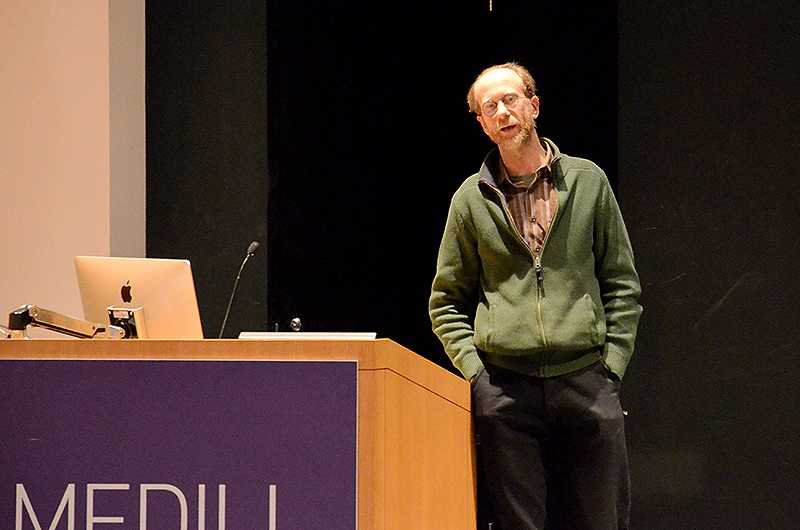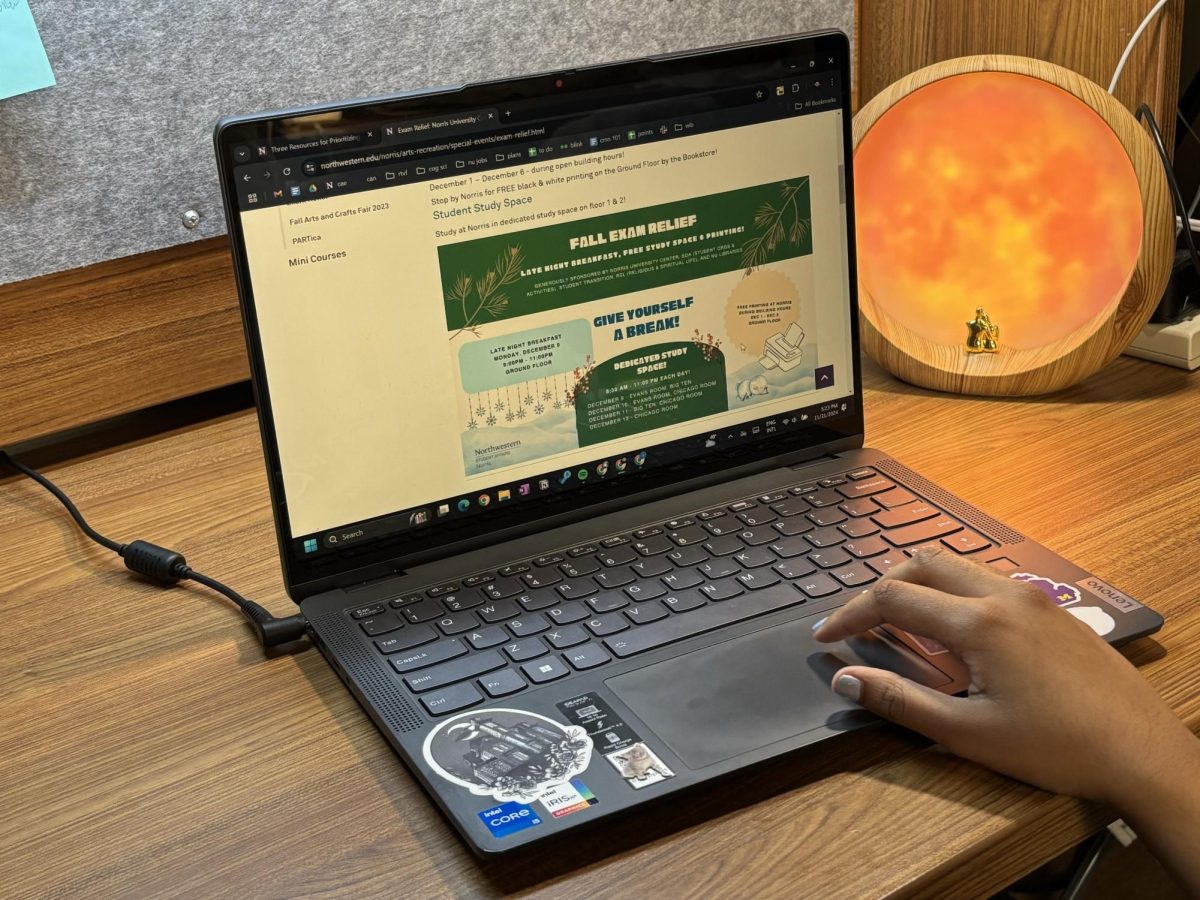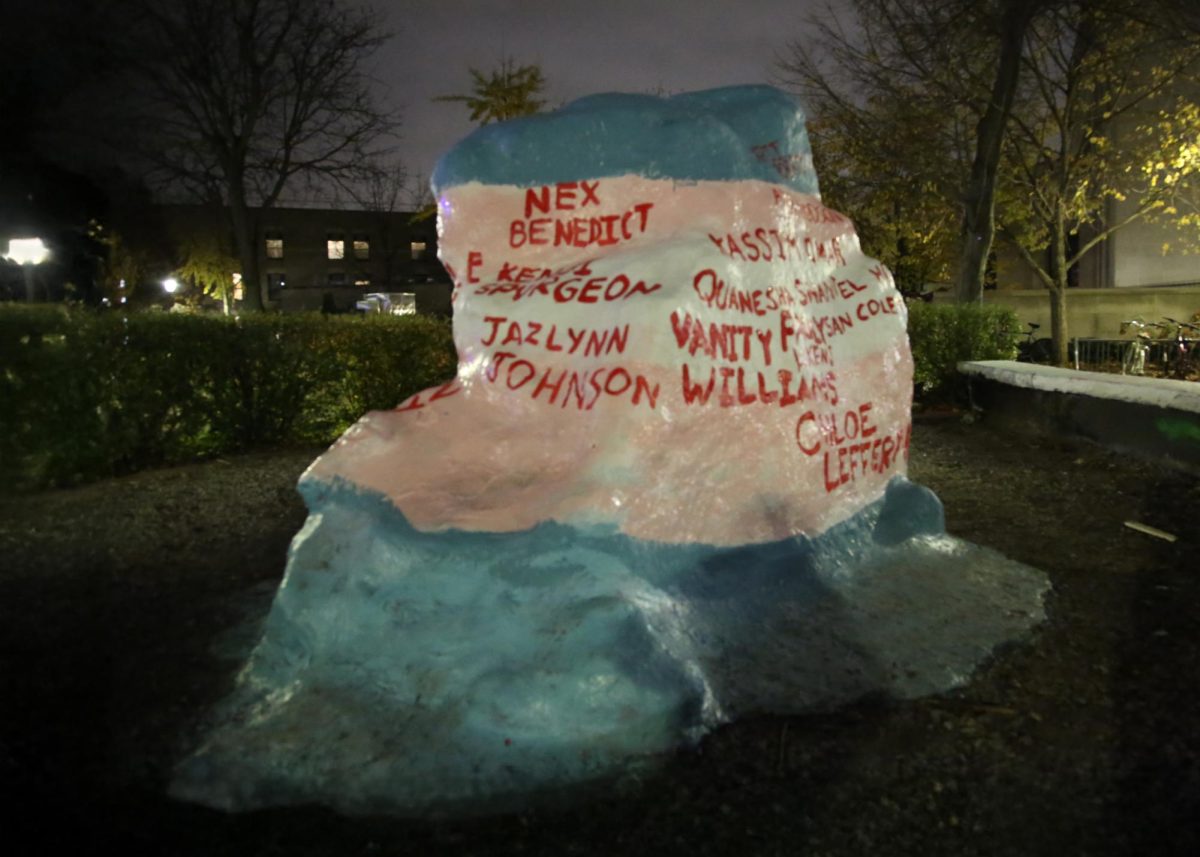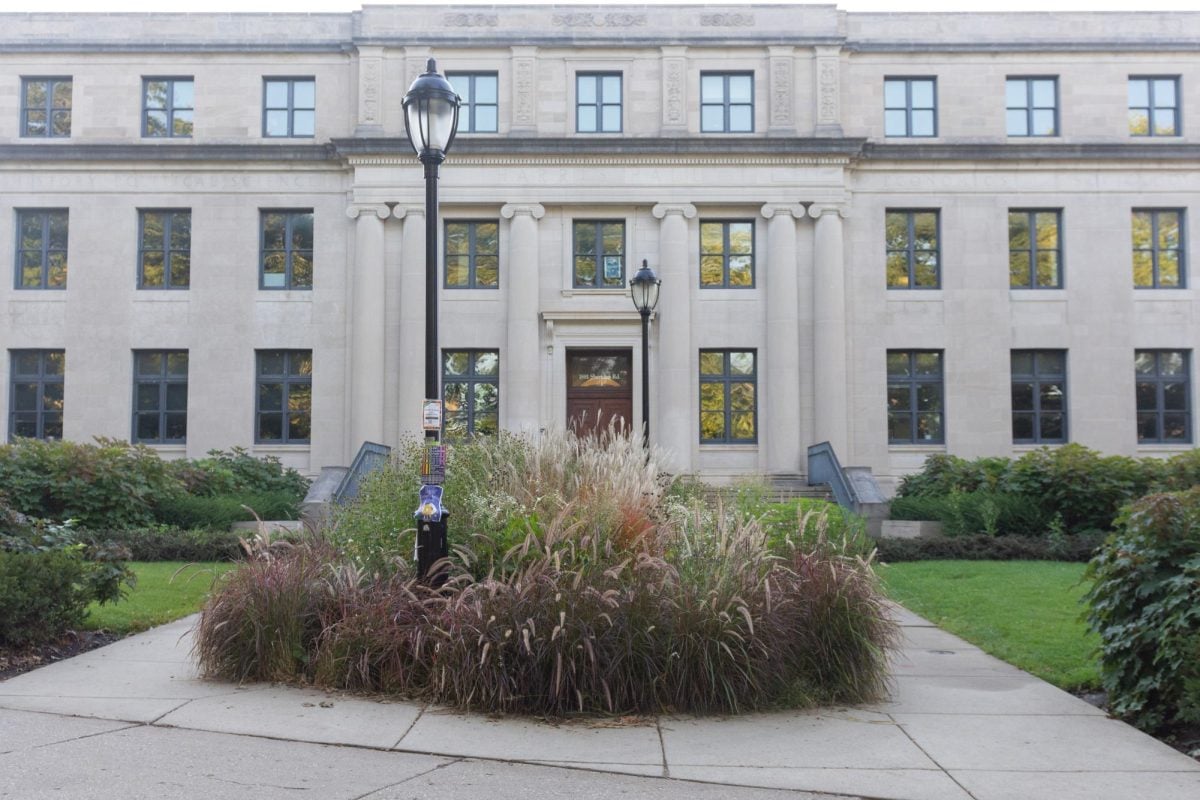Behind the brick walls of a former meatpacking facility on the South Side of Chicago, John Edel is working to create a model for sustainable urban farming.
Edel, director and founder of The Plant, came to Northwestern Tuesday night to talk about his center for urban farming and sustainable food businesses.
The talk, hosted by the student gardening group Wild Roots, brought about 60 people to the McCormick Tribune Center.
Edel purchased the Peer Foods meatpacking facility, an abandoned relic of Chicago’s industrial days, in 2010. As renovation began, Edel said they worked with what the building had to offer.
“It was 90 years old, but it had an enormous amount of embodied energy in the structure,” he said.
Crews reused metal, drywall and scraps left behind in the building to create new rooms and structures. At the same time, work began on The Plant’s larger goal of creating a sustainable system, generating its own energy and reusing all of its waste.
“The Plant is striving to be a living machine,” Edel said. “We close loops. We try to find a use for the output of every process.”
This “closed loop” is exemplified in The Plant’s “aquaponics” system. Edel described this indoor farming method, which uses waste from tank-raised fish to feed plants grown in water without soil. Both the fish and the produce are then harvested and sold.
The aquaponics farm is run by Greens and Gills, one of the handful of tenants that operate within The Plant. The building’s five indoor farms grow crops such as herbs, mushrooms and low-hanging fruits. Two bakeries make fresh bread, pies and pastries. And plans are moving ahead for the construction of two breweries.
Edel said his vision is for all of these businesses to eventually be using the waste of one as fuel for another. He provided the example of using carbon dioxide waste from the breweries to enrich the growth of produce.
“You can’t always succeed, but you can do something with just about anything,” Edel said. “Even if you just shave 10 percent of the input cost off for the business, that’s still 10 percent.”
The Plant will ultimately be completely net-zero, Edel said, although the food waste processor that will be used to power the building is still under construction.
Wild Roots decided to bring in Edel to speak after a few of its members volunteered at The Plant. Adam Berman, co-president of Wild Roots, said he was happy with the talk and its content.
“As college students, we are really disconnected from where our food comes from, especially living in an urban environment,” the Weinberg senior said. “The Plant is a creative example of how you can change the system and grow food in an urban space.”
The Plant also works to reach out to the local Chicago community. This has included gardening classes, panel discussions and a local farmer’s market.
“We want to get people talking to each other, thinking about food,” Edel said. “The more people talk to each other, the more things come out of it.”
Weinberg senior Ari Melinger-Cohen said he was inspired by the talk.
“This is the sort of thing that needs to be happening because it’s working against the grain, and it’s trying to change things,” Melinger-Cohen said. “It’s trying to progress society forward.”
Edel said he wants The Plant to be a place where people can experiment with innovative ideas.
“Attempting to do things like brewing and baking at net-zero proves a point,” Edel said. “The idea is to try to put pressure on corporations and everybody else, saying ‘If I can do that, how come you can’t?’”
Email: [email protected]
Twitter: @scottbrown545













